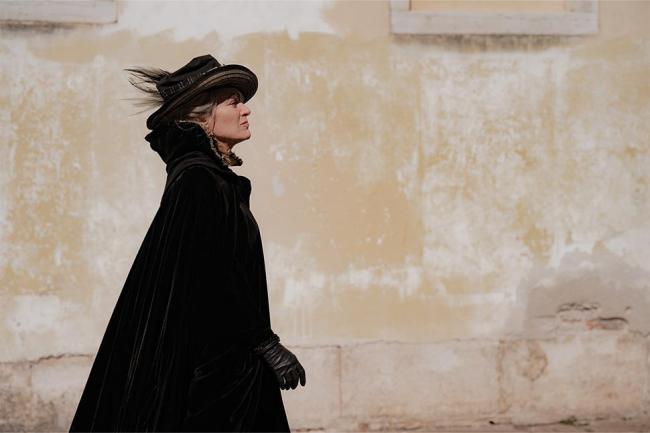Duse Review: Pietro Marcello’s Eleonora Duse Biopic Struggles to Find Its Voice

With Duse, filmmaker Pietro Marcello turns his lens on Eleonora Duse (1858–1924), the legendary Italian actress whose life and work remain largely undocumented. Following his acclaimed Martin Eden (2019), Marcello shifts from the story of an underdog’s rise to an achiever’s struggle to maintain artistic relevance in a turbulent post-war era.
The Story and Its Shortcomings
Played by Valeria Bruni Tedeschi, Eleonora Duse returns from retirement to reclaim her place on the stage. Yet, instead of showcasing her artistic brilliance, Marcello paints her as a one-dimensional, almost parodic figure, often shouting and brimming with theatrical fervor. Without early glimpses of her stage work, the audience is asked to believe in her legend without evidence, weakening emotional engagement.
Marcello’s script, co-written with Letizia Russo and Guido Silei, introduces the rise of fascism and even a chilling personal invitation from Mussolini, but it takes too long to contextualize Duse’s unraveling psyche. Archival footage, spliced in place of exterior shots, tantalizes with hints of a richer historical exploration that never fully materializes.
The Emotional Core: Enrichetta
Amid the noise, Noémie Merlant shines as Enrichetta, Duse’s estranged daughter. Quiet and understated, her presence provides the film’s most poignant moments, particularly when she is denied entry to her mother’s play. Sadly, her role is sidelined much like Enrichetta was in Duse’s real life, robbing the narrative of a potentially powerful mother-daughter thread.
Structure and Style
Marcello’s stylistic choice of continuous time jumps, where years pass between conversations, creates a disorienting rhythm. While frustrating in the first half, this device gains poignancy by the finale, as Eleonora’s psychosis deepens and the characters are finally forced into moments of clarity. Still, much of the film feels like a one-woman play, dominated by Bruni Tedeschi’s performance at the expense of narrative depth.
Missed Opportunities
A quick look at Duse’s real history reveals fascinating material — her near collaboration with D.W. Griffith and her partnership with Lina Poletti, one of Italy’s first openly lesbian women. These elements are absent from Marcello’s overly neat and familiar biopic structure, leaving audiences with a sense of what could have been.
See More ...
Final Verdict
While Pietro Marcello sought to honor Eleonora Duse’s legacy, Duse fails to capture the complexity and magnetism of its subject. The film finds fleeting strength in Noémie Merlant’s performance and its closing act, but it never transcends its limitations.
Grade: C+
Duse premiered at the 2025 Venice Film Festival and is currently seeking U.S. distribution.




